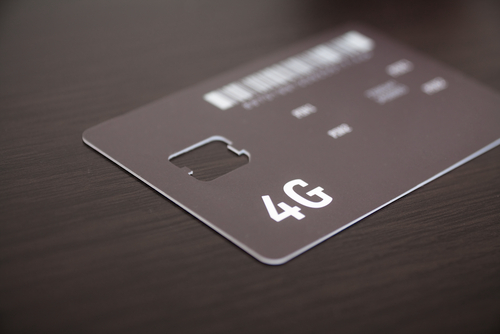Ofcom: UK 4G Average Of 15.1Mbps Is Twice As Fast As 3G

Ofcom tests 4G and 3G speeds in Birmingham, Edinburgh, Glasgow, London and Manchester, with EE leading the way in speed and Three bringing up the rear
Ofcom says 70 percent of the UK can now access 4G from at least one operator and claims the average LTE speed in five major cities is 15.1Mbps – twice that of 3G.
The regulator conducted 210,000 indoor and outdoor tests in Birmingham, Edinburgh, Glasgow, London and Manchester between March and June to give consumers an indication of the differences between the 4G and 3G services offered by the UK’s four major operators.
EE, O2, Three and Vodafone were measured by four criteria – download speed, upload speed, web browsing speed and latency – and Ofcom hopes the results will also encourage each company to improve their respective services.
Speed and latency
 EE offered the fastest average 4G speed in the five cities at 18.4Mbps, while O2 delivered 15.6Mbps, Vodafone 14.3Mbps and Three 10.7Mbps. The average 3G speed was 6.1Mbps, with EE again fastest at 6.8Mbps, Vodafone 6.7Mbps, O2 5.6Mbps and Three 5.2Mbps.
EE offered the fastest average 4G speed in the five cities at 18.4Mbps, while O2 delivered 15.6Mbps, Vodafone 14.3Mbps and Three 10.7Mbps. The average 3G speed was 6.1Mbps, with EE again fastest at 6.8Mbps, Vodafone 6.7Mbps, O2 5.6Mbps and Three 5.2Mbps.
The average time it took to load a web page on 4G was recorded as 0.78 seconds on 4G and 1.06 on 3G, with Three the best on both 4G and 3G. O2 was the slowest for both, but at least it shared that dubious honour with Vodafone on 3G.
4G offers lower latency than 3G across all four networks with an average of 55 milliseconds on the former versus 66.7 milliseconds on the latter. Three has the lowest latency on 3G and 4G, wile O2 has the highest.
“Having fast, reliable broadband on the move is vital for many consumers and businesses across the UK,” says Ed Richards, Ofcom CEO. “Today’s research shows 4G is providing a significantly enhanced mobile broadband experience to customers, which we expect to be available to 98 percent of the UK population by 2017 at the latest.”
“Improving mobile quality of service is an important area of Ofcom’s work. Our research both incentivises mobile providers to offer a higher quality of service, while helping consumers choose a mobile package that best suits their needs.”
Coverage info
Ofcom also gave some indication of coverage across the entire country its report, measured by comparing its own field tests against strength estimates from each operator. EE has 98 percent 3G coverage and 70 percent 4G, while O2 has 91 percent and 51 percent and Vodafone 87 percent and 51 percent.
The report stated that Three has 98 percent 3G coverage but offered no data on the company’s 4G network, stating there was no time to resolve discrepancies between Ofcom and Three’s data.
 More information will be published in the regulator’s Infrastructure Report later this year, and Ofcom says it acknowledges that each operator is likely to have improved their networks since its last tests in June. EE, for example, now claims 75 percent coverage.
More information will be published in the regulator’s Infrastructure Report later this year, and Ofcom says it acknowledges that each operator is likely to have improved their networks since its last tests in June. EE, for example, now claims 75 percent coverage.
Of course, Ofcom’s figures for speed and latency are skewed towards urban areas due to the locations of its tests. Recent research from Opensignal, which collected data from 68 million readings from 40,000 volunteers, suggests that average 4G speeds in the UK have halved in the past year from 19Mbps to 10Mbps as more users join LTE networks.
Opensignal says its testing methods provide more accurate coverage maps than predictions made by operators, which often don’t take into account variables like buildings and trees that can impact signal.
RootMetrics tests have previously suggested that EE is the best operator in both the UK and London, although Liverpool has the best mobile service in the country, ahead of the capital and other major cities.
The government has announced proposals to deal with the issue of poor mobile coverage in rural areas, including a ‘national roaming’ network, although this is being resisted by mobile operators who say such a system would be expensive, unworkable and unlikely to deliver any real benefit.
Ofcom also plans to auction off more spectrum, possibly as early as next year, to help operators cope with growing demand for mobile data.
What do you know about UK mobile operators? Find out with our quiz!